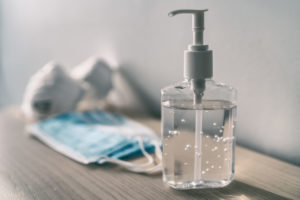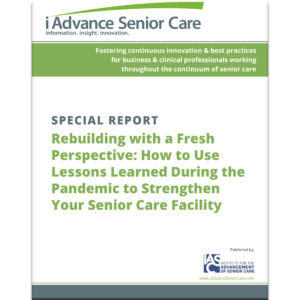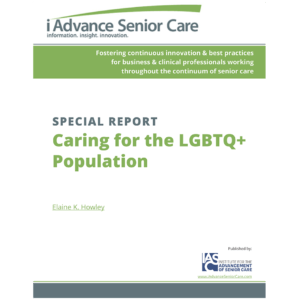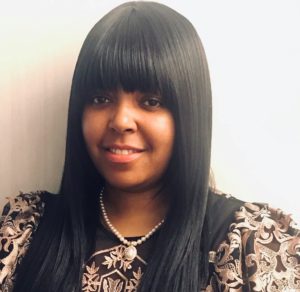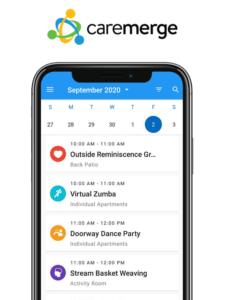What Senior Care Facilities Need to Know About COVID-19 Liability
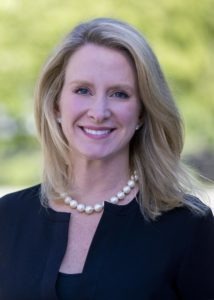
Christy Tosh Crider, attorney, Baker Donelson
With the COVID-19 pandemic, senior care facilities are facing unprecedented challenges. Unfortunately, that pandemic also brings significant legal complications that facilities need to be aware of. With cases and acts concerning senior care facility liability still evolving, facilities need to take an active role in learning about potential liabilities and in taking preventative steps.
COVID-19 Liability and Senior Care Facilities
When a senior care facility experiences a COVID-19 outbreak, that facility could face multiple liability issues. Christy Tosh Crider, attorney at Baker Donelson, explains, “An outbreak presents what I view as a triple threat: professional liability claims from families of residents who contracted COVID, regulatory citations under infection control tags from CMS, police investigations into the deaths in extreme circumstances, and employment claims from worker’s compensation to whistle blower claims.
“I have represented one facility who faced all four from one COVID outbreak, and they had done an excellent job with their preparation and response. It’s so important not just to do a great job, but to document it.”
Many states have implemented liability protections to help protect senior care facilities, but given that the pandemic and liability cases are still new, the effectiveness of those protections is still unproven. “[U]ltimately, aging services providers may be excluded from liability protections that have shielded them from litigation in the past,” explains Alicia Davis, CEO of Med Law Advisory Partners.
“Further, gross negligence cases, highlighting “profits over patients,” may be filed in an attempt to circumvent any liability immunity protections in place. Our senior living partners are providing services to their residents in good faith on the frontline of the pandemic with a looming risk of being excluded from state immunity protections. Senior living providers must engage in proactive risk-mitigation measures, to include thorough staff training and defensive record-keeping strategies, to help reduce the chance of COVID claims. The best defense is always a good offense.”
Crider recommends that facilities monitor the evolving progress of the Public Readiness and Emergency Preparedness (PREP) Act.
“It would give sweeping federal level immunity. I expect Plaintiff attorneys to flock to states who do not pass state level immunity. What senior care facilities need to know is that they need to keep excellent documentation of their response to COVID because whether they end up with airtight immunity or none at all remains to be seen, and that immunity will not protect them from regulatory authorities, who are often far less fair than juries,” she explains.
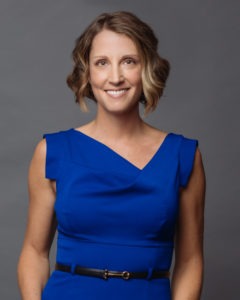
Alicia Davis, CEO, Med Law Advisory Partners
Precautionary Steps to Take
With the PREP Act and liability protections still untested and evolving, it’s essential that businesses take precautionary steps to protect themselves from potential legal ramifications if a COVID-19 outbreak does occur.
“While proactive preparation is essential to demonstrate compliance with developing guidelines during the rapidly evolving environment of the pandemic, understanding and implementing defensive medical record keeping practices will also be critical,” says Davis.
“It will be important to ensure each medical record minimally reflects ongoing resident and family education on COVID-19 symptoms and infection prevention, daily clinical signs and symptoms monitoring, quick identification and MD reporting of resident changes in condition, and measures to isolate potential cases.”
Crider also encourages facilities to document the following:
- Your COVID response team
- Your COVID response plan
- Your screening procedures
- Your visitor policy
- Excellent medical doctor notification
- Excellent family communication
- Daily staff screening
Crider encourages facilities to document the evolution of the above practices, as well as to document corresponding guidance from the CDC, CMS, and the facility’s local Department of Health.
Davis notes, “We have evaluated several cases in which the residents never developed symptoms of COVID, underscoring the importance of staff vigilance with infection prevention and control procedures with all residents, regardless of their COVID-19 status.”
Facilities may also want to ensure that staff complete the available CMS nursing home training designed to help staff prevent the spread of COVID-19 throughout a nursing home. “The fact that CMS is tracking and publicizing this information could cause potential defensibility problems with facilities with low training rates,” explains Davis. “We urge our senior living partners to make this training a priority, as demonstrating ongoing staff education will go a long way in helping defend COVID claims.”
Looking Forward
The pandemic and its legal implications for senior care facilities are still evolving, but facilities need to assume an active role in documenting and protecting themselves.
Crider has some final words of encouragement: “I know how exhausted you all are. I know that as we pass the ten-month mark of you fighting this virus and fighting the equally devastating effects of loneliness in your residents, that there are days you want to leave the profession. Please don’t. You are heroes. We see what you are doing. We are so proud to be your partners in this fight.”

Paige Cerulli is a contributing writer to i Advance Senior Care.
Related Articles
Topics: Facility management , Featured Articles , Infection control , Risk Management , Training



